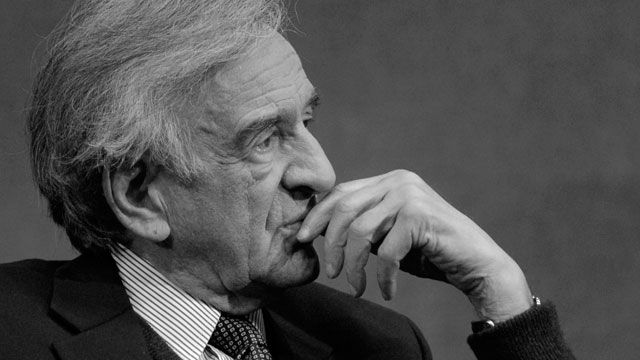Nobel Peace Prize-winner Elie Wiesel was born in 1928 in Transylvania, in a region that is now part of Romania. When he was 15 years old, Nazis deported his family to Auschwitz. His mother and youngest sister died, his two older sisters survived. Wiesel and his father were then transferred to Buchenwald, where Wiesel’s father died shortly before the camp was liberated in April 1945.
After the war, Wiesel studied in Paris and later became a journalist. During an interview with the distinguished French writer, Francois Mauriac, he was persuaded to write about his experiences in the death camps. The result was his internationally acclaimed memoir, Night, which has since been translated into more than 30 languages.
In 1978, President Jimmy Carter appointed Wiesel Chairman of the President’s Commission on the Holocaust. He also became the Founding Chairman of the United States Holocaust Memorial Council. He is President of The Elie Wiesel Foundation for Humanity, an organization he and his wife created to fight intolerance and injustice. Elie Wiesel has received more than 100 honorary degrees from institutions of higher learning.
Since 1976, Wiesel has been the Andrew W. Mellon Professor in the Humanities at Boston University. He is a member of the Faculty in the Department of Religion as well as the Department of Philosophy. Previously, he served as Distinguished Professor of Judaic Studies at the City University of New York (1972-76) and the first Henry Luce Visiting Scholar in Humanities and Social Thought at Yale University (1982-83).
Elie Wiesel is the author of more than 50 books of fiction and non-fiction. He has received numerous awards including the Presidential Medal of Freedom, the U.S. Congressional Gold Medal, the National Humanities Medal, the Medal of Liberty and the rank of Grand-Croix in the French Legion of Honor. He was awarded the Nobel Peace Prize in 1986.

